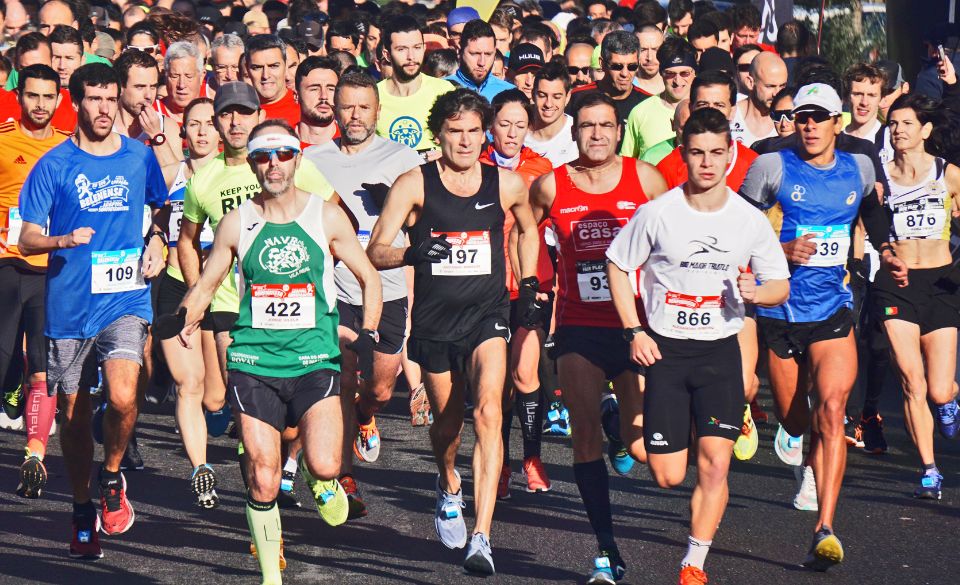
Best Way to Recover from a Marathon
Page Contents
- How Many Days Should I Rest After a Marathon?
- How Many Weeks Does it Take to Recover from a Marathon?
- What is the Best Way to Recover from a Marathon?
- What is the Post-Marathon Syndrome?
- Does Your Immune System Weaken After a Marathon?
- What Should I Eat to Recover from a Marathon?
- How Can a Runner Recover Faster?
- Best Way to Recover from a Marathon – Final Words
So, you’ve crossed the finish line of a marathon, a remarkable accomplishment that deserves recognition. But now what? How do you ensure a proper recovery that allows your body to bounce back and prepare for future running endeavors? In this blog post, we’ll explore the best way to recover from a marathon, providing you with valuable insights and practical tips to optimize your post-race healing process.
How Many Days Should I Rest After a Marathon?
Rest is crucial after completing a marathon, as your body needs time to repair and rejuvenate. The exact number of rest days may vary depending on individual factors, such as fitness level and race intensity. However, a general guideline is to take at least a few days of complete rest immediately following the race. This period allows your muscles, joints, and energy systems to recover from the physical exertion and trauma experienced during the marathon. Listen to your body and give yourself the necessary time to rest before easing back into training gradually.
How Many Weeks Does it Take to Recover from a Marathon?
While complete recovery may take several weeks, it’s important to note that the initial phase of recovery, where the most significant healing occurs, typically lasts about two to three weeks. During this time, your body repairs damaged muscle tissue, replenishes energy stores, and regains balance. However, it’s essential to approach your recovery patiently and not rush the process. Be prepared for the possibility of experiencing post-marathon fatigue, muscle soreness, and overall fatigue during this period.
What is the Best Way to Recover from a Marathon?
The best way to recover from a marathon is through a comprehensive approach that addresses both physical and mental aspects. Here are some key strategies to optimize your recovery:
1. Active Recovery and Cross-Training: Engage in low-impact activities like swimming, cycling, or yoga to promote blood flow, aid in muscle recovery, and reduce stiffness. These activities can help maintain fitness without placing excessive stress on your joints and muscles.
2. Gradual Return to Running: After a period of complete rest, gradually reintroduce running into your routine. Start with light jogging or walk-run intervals and slowly increase the intensity and duration over time. Pay attention to any signs of pain or discomfort and adjust accordingly.
3. Proper Nutrition: Focus on a balanced diet that includes lean proteins, complex carbohydrates, and healthy fats to support muscle repair and replenish energy stores. Hydration is also vital for recovery, so be sure to drink plenty of water throughout the day.
4. Quality Sleep: Allow your body ample time to rest and recover by prioritizing quality sleep. Aim for 7 to 9 hours of uninterrupted sleep each night. Create a relaxing bedtime routine and ensure your sleep environment is cool, dark, and comfortable.
What is the Post-Marathon Syndrome?
The post-marathon syndrome, also known as post-race blues, is a common psychological phenomenon that some runners experience after completing a marathon. It is characterized by feelings of sadness, emptiness, or a sense of letdown after the event. This emotional response can be attributed to the months of preparation, the excitement of race day, and the adrenaline rush experienced during the marathon. To combat post-marathon syndrome, focus on setting new goals, celebrating your achievement, and finding joy in the journey rather than solely the end result.
Does Your Immune System Weaken After a Marathon?
Participating in a marathon can temporarily suppress the immune system. The intense physical stress endured during the race, coupled with factors like inadequate sleep, improper nutrition, and travel-related stress, can make you more susceptible to illness in the days following the event. To support your immune system, prioritize adequate rest, consume a balanced diet rich in fruits and vegetables, and practice good hygiene. If you do become ill, allow your body the necessary time to recover before resuming intense training.
What Should I Eat to Recover from a Marathon?
Nutrition plays a vital role in the recovery process after a marathon. To aid in muscle repair and replenish glycogen stores, focus on consuming a mix of carbohydrates and proteins within the first hour or two after the race. Opt for nutrient-dense foods such as lean meats, fish, whole grains, fruits, and vegetables. Additionally, stay hydrated by drinking plenty of fluids, including water and electrolyte-rich beverages. Throughout the recovery period, continue to prioritize a well-rounded diet that supports overall health and helps you regain strength and energy.
How Can a Runner Recover Faster?
As a runner, you’re no stranger to the importance of recovery in optimizing your performance. While recovery time is individualized and varies based on factors such as race distance and intensity, there are strategies you can employ to help speed up the recovery process and get back on your feet faster. Here are some key ways to enhance your recovery and promote faster healing:
Nutrition for Recovery: Proper nutrition plays a crucial role in helping your body recover faster. Focus on consuming a mix of carbohydrates and proteins to replenish glycogen stores and support muscle repair. Include foods such as lean meats, fish, whole grains, fruits, and vegetables in your post-race meals. Additionally, stay hydrated by drinking plenty of water and electrolyte-rich beverages to restore fluid balance.
Active Recovery: Engaging in light, low-impact activities can promote blood flow and aid in the recovery process. Consider activities like gentle swimming, cycling, or walking, which can help flush out metabolic waste products and reduce muscle soreness. Keep the intensity low to avoid placing additional stress on your muscles and joints.
Quality Sleep: Sleep is a critical component of recovery and can significantly impact your body’s ability to heal. Aim for 7 to 9 hours of quality sleep each night to promote tissue repair, hormone balance, and overall recovery. Create a conducive sleep environment by keeping your bedroom cool, dark, and quiet. Establish a relaxing bedtime routine to signal to your body that it’s time to unwind and rest.
Foam Rolling and Stretching: Incorporate foam rolling and stretching exercises into your post-race recovery routine. These activities can help alleviate muscle tension, improve flexibility, and enhance blood circulation. Focus on major muscle groups and areas that feel particularly tight or sore. Take your time and listen to your body, avoiding excessive pressure or discomfort.
Gradual Return to Running: While rest is essential, gradually reintroduce running into your routine to promote faster recovery. Start with light jogging or walk-run intervals, gradually increasing the intensity and duration over time. Monitor your body’s response and adjust accordingly. If you experience pain or discomfort, take a step back and give yourself more time to recover.
Cross-Training: Incorporate cross-training activities that complement running into your routine. Activities like strength training, cycling, and yoga can help improve overall fitness, strengthen supporting muscles, and prevent imbalances or overuse injuries. Cross-training also provides a mental break from running while keeping you active and engaged.
Listen to Your Body: Pay close attention to your body’s signals and cues during the recovery process. If you feel excessively fatigued, experience persistent pain, or notice any concerning symptoms, it’s crucial to listen to your body and seek appropriate medical advice. Pushing through pain or rushing the recovery process can lead to further injury or setbacks.
Remember, recovery is a vital part of the training process. By implementing these strategies and allowing your body the time it needs to heal, you can recover faster, reduce the risk of overuse injuries, and be back on track to pursue your running goals.
Best Way to Recover from a Marathon – Final Words
Completing a marathon is an incredible achievement that requires dedication, perseverance, and mental and physical strength. The recovery process is just as crucial as the training itself. By incorporating rest, proper nutrition, active recovery, and listening to your body’s needs, you can optimize your recovery and set the stage for future running success. Remember to approach your recovery with patience, celebrate your accomplishment, and enjoy the journey of being a marathoner.




